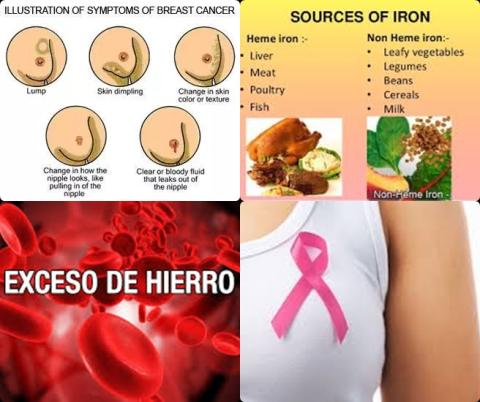
Objectives:
Iron has been shown to promote breast carcinogenesis in animal models through generation of oxidative stress and interaction with estrogen. Heme iron, which is found exclusively in animal-sourced foods, is suggested to have a more detrimental effect. Epidemiological evidence of the association between iron and breast cancer risk remains inconclusive and has not been comprehensively summarized. Therefore, this review article has been conducted.
Does dietary iron consumption increase breast cancer risk?
Study design:
This review article included 15 case-control studies and 12 prospective cohort studies.
Of the 17 studies assessing iron intake, 7 were cohort studies with study size ranging from 4,646 to 193,742 participants, follow-up ranging from 5.5 to 20 years and number of breast cancer cases ranging from 188 to 9,305. The remaining 10 studies were case-control studies, of which 4 were hospital-based, 3 were population-based and 3 were nested within existing cohorts, with case numbers ranging from 220 to 3,452.
Of the 11 studies assessing body iron status, 5 were cohort studies with study size ranging from 1,795 to 164,355 participants, follow-up ranging from 7.1 to 17.6 years and number of cases ranging from 80 to 3,238. The remaining 6 studies used a nested case-control or case-cohort design, with follow-up (where reported) ranging from 4 to 15.7 years and case numbers ranging from 107 to 795.
Overall, NOS scores ranged from 4 to 9 (mean = 7.0).
No publication bias was found.
Results and conclusions:
The investigators found compared to lowest category, highest dietary heme iron intake significantly increased risk of breast cancer with 12% [pooled RR = 1.12, 95% CI = 1.04-1.22, I2 = 39%, p heterogeneity = 0.15].
The investigators found each 1 mg/day increase in dietary heme iron intake, was associated with a statistically significant 8% increase in breast cancer risk [pooled RR = 1.08, 95% CI = 1.002–1.17].
The investigators found compared to lowest levels, highest serum iron levels significantly increased risk of breast cancer with 22% [pooled RR = 1.22, 95% CI = 1.01-1.47, I2 = 61%, p heterogeneity = 0.04].
The investigators found serum iron levels exhibited a J-shaped dose-response relationship with breast cancer risk, with strong evidence of a nonlinear effect [p nonlinearity 0.001].
Specifically, a steady increase in risk was noted for serum iron levels above ~ 100 μg/dL, with the association becoming statistically significant at just beyond ~ 125 μg/dL.
The investigators concluded that higher dietary heme iron intake and higher serum iron levels increase breast cancer risk. Further research is needed to better elucidate the association between iron intake/status and risk of breast cancer.
Original title:
Iron intake, body iron status, and risk of breast cancer: a systematic review and meta-analysis by Chang VC, Cotterchio M and Khoo E.
Link:
https://www.ncbi.nlm.nih.gov/pmc/articles/PMC6555759/
Additional information of El Mondo:
Find more information/studies on iron consumption, review article/significantly and breast cancer right here.